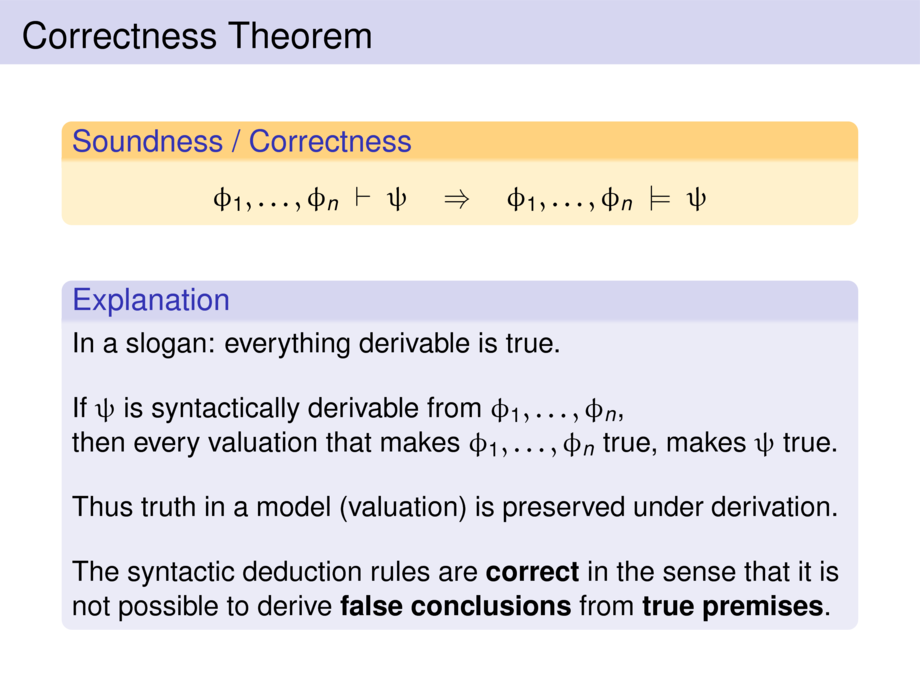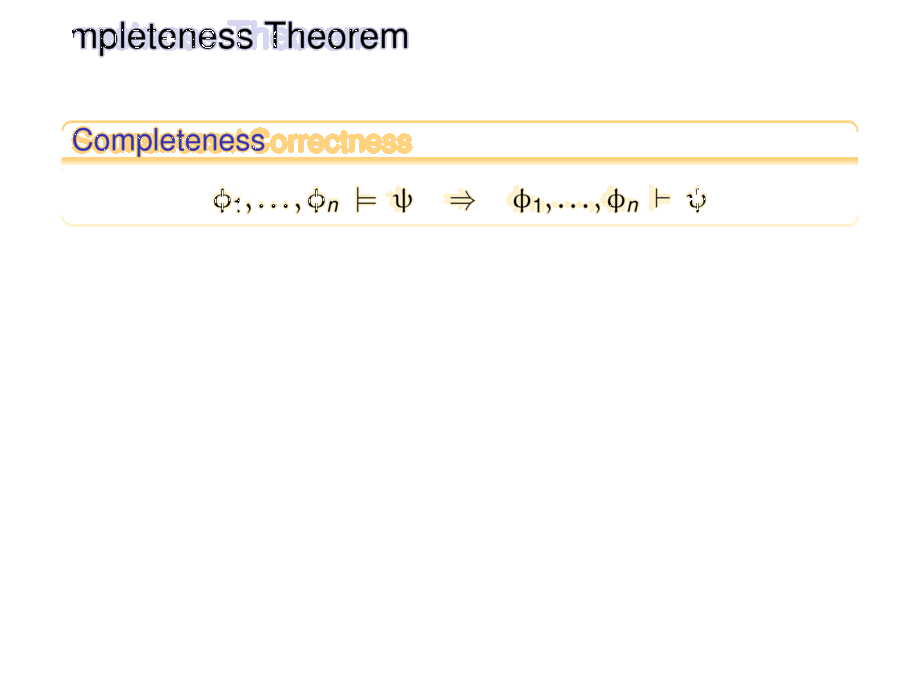



































































































25/32
\begin{frame}
\frametitle{Completeness Theorem}
\begin{goal}{Completeness}
\vspace{-1ex}
\begin{talign}
\phi_1,\ldots,\phi_n \;\models \; \psi
\quad\Rightarrow\quad
\phi_1,\ldots,\phi_n \;\vdash \; \psi
\end{talign}
\end{goal}
\pause\bigskip
\begin{block}{Explanation}
\pause
In a slogan: everything true is derivable.
\bigskip\pause
If $\psi$ follows semantically from $\phi_1,\ldots,\phi_n$,\\
then $\psi$ can be derived syntactically from premises $\phi_1,\ldots,\phi_n$.
\bigskip\pause
This means that the syntactic derivation rules are strong enough
to derive every semantic conclusion.
\bigskip\pause
Thus the system is \emph{complete}: no more rules are needed.
\end{block}
\end{frame}

